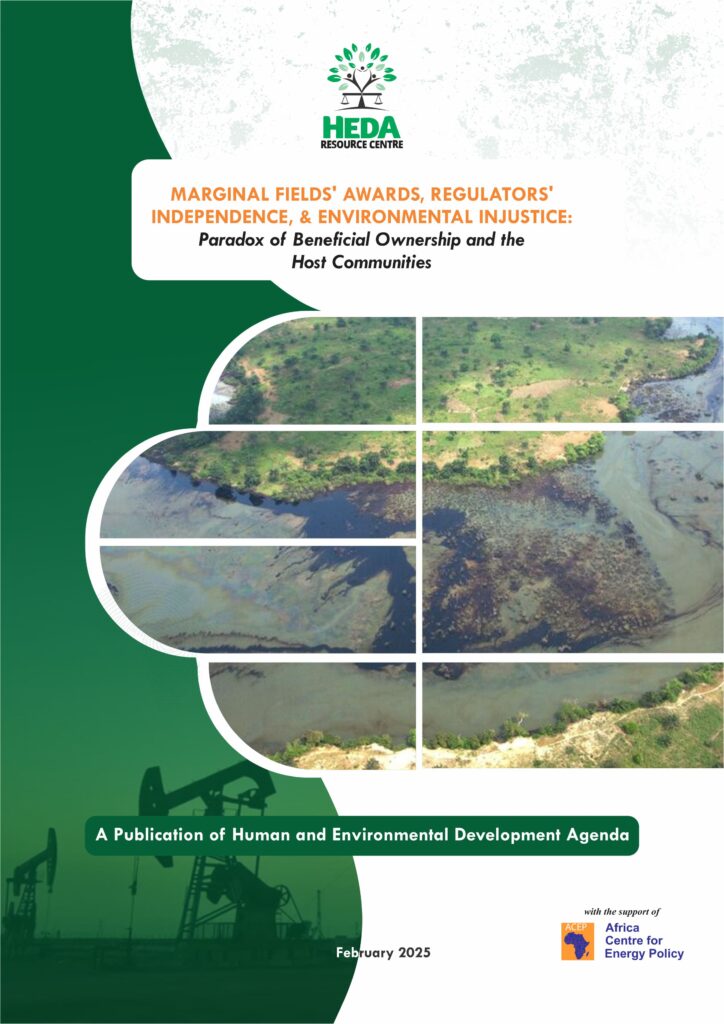The Human and Environmental Development Agenda (HEDA Resource Centre) proudly participated in a significant two-day digital security and resilience workshop, organized by the Human Rights Journalists Network Nigeria (HRJN), in collaboration with the West African Civil Society Institute (WACSI) and the Mott Foundation. It aimed to equip journalists, civil society organizations (CSOs), and activists with essential knowledge and skills to safeguard their physical and digital security, ensuring freedom from intimidation or harassment by state and non-state actors.
The workshop concentrated on digital security, emphasizing the protection of journalists and CSOs operating online and fostering resilience against various forms of attacks. Key topics covered included state surveillance, self-protection strategies for journalists and CSOs, the development of digital security policies, and legal support for litigation issues.
Participants explored the escalating threats and arrests faced by journalists due to their work, highlighting the crucial role of CSOs in ensuring online safety for all. Discussions underscored the judiciary’s role in supporting journalism, advocating for accountability, and pushing for justice system reforms to create laws that protect journalists from increasing threats.
Several distinguished speakers provided invaluable insights during the workshop: Israel Olatunji Tijani, CEO of ChatVE: Tijani initiated the workshop with an extensive session on privacy and security principles, focusing on the core aspects of information security—confidentiality, integrity, and availability. He offered practical tips on implementing these principles in daily operations to enhance overall security posture.
On her part, Blessing Oladunjoye’s session on security and privacy settings highlighted the importance of two-factor authentication (2FA) and social media security. She explained how 2FA adds an extra layer of protection and provided step-by-step guides on adjusting privacy settings on various social media platforms to prevent unauthorized access.
Godstime Agho, IT Expert: Agho’s session focused on physical security and the importance of strong passwords in mitigating risks. He discussed best practices for creating and managing strong passwords and emphasized securing workspaces, using lockable storage for sensitive documents, and implementing surveillance systems.
Kehinde Adegboyega, Executive Director of HRJN: Adegboyega educated participants on state surveillance and techniques for citizen awareness. He outlined methods used by governments and other entities to monitor and collect data on individuals, provided strategies for detecting and evading surveillance, and stressed the importance of using encrypted communication tools.
He concluded the workshop by highlighting its success in equipping journalists, CSOs, and activists with essential security principles. He urged all participants to remain digitally savvy and security-conscious in the ever-evolving digital landscape.
The event underscored the critical importance of digital identity protection and strategies to counter digital threats. This initiative marks a significant step toward creating a safer environment for journalists and civil society organizations operating in the digital realm.
Nurudeen Salako, HEDA Resource Centre’s Communication Officer, attended the workshop, reflecting the organization’s commitment to enhancing digital security and resilience among its members and the broader community. HEDA Resource Centre’s participation underscores its dedication to advocating for the rights and safety of those working in the digital space.



